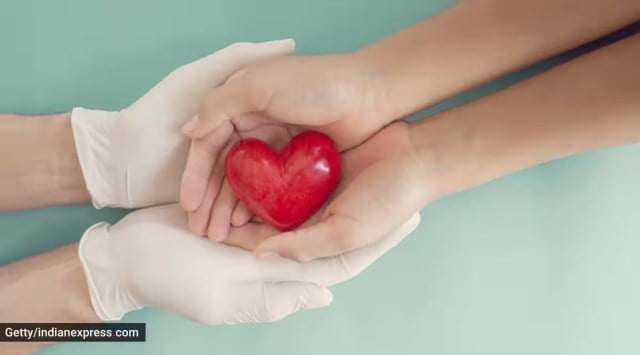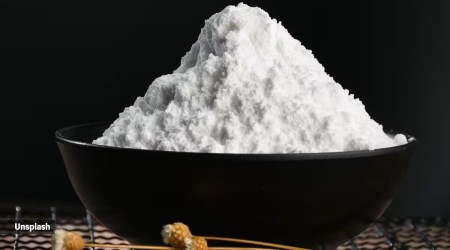World Organ Donation Day: Debunking the myths around organ donation
There are several myths surrounding organ donation that can create misunderstandings. Here are seven common myths about organ donation, which need to be debunked and their corresponding facts.
 World Organ Donation Day is celebrated on August 13 every year. (Source: Getty Images/ Thinkstock)
World Organ Donation Day is celebrated on August 13 every year. (Source: Getty Images/ Thinkstock)Every year, August 13 is marked as World Organ Donation Day. Organ donation is crucial because it saves lives and improves the quality of life for individuals suffering from organ failure or chronic diseases.
According to Dr Kishore GSB, Senior Consultant – Liver Transplant and Dr Piyush K Sinha, Senior Consultant – Liver Transplant, Fortis Hospital, Bannerghatta Road, Bangalore, patients with end-stage organ failure have repeated hospitalisations, poor quality of life and reduced life expectancy despite best medical management. Organ donation has the potential to change this and provides such patients with a second chance at life.
From the perspective of a deceased donor’s family, organ donation is the highest act of altruism which provides a deep sense of meaning to their loved one’s life. “Even in times of grief, that final noble act offers solace in the fact that as many as eight recipients and their families would have received priceless gifts.” Dr Kishore said.
Dr P. Vikranth Reddy, Head of the Department & Chief Consultant, CARE Hospitals, Banjara Hills, Hyderabad, noted that the demand for organs far exceeds the supply, leading to long waiting lists for organ transplants. By donating organs, you can help reduce the number of deaths that occur while waiting for a suitable donor organ.
Organ donation also supports medical research and advancements. Donated organs can be used for research purposes, contributing to the development of new treatments and technologies.
There are several myths surrounding organ donation that can create misunderstandings. Here are seven common myths about organ donation, which need to be debunked and their corresponding facts.
 Organ donation also supports medical research and advancements. (Source: Getty Images/Thinkstock)
Organ donation also supports medical research and advancements. (Source: Getty Images/Thinkstock)
Myth 1: Organ donors receive inadequate medical care to ensure their organs are harvested
Fact: Medical professionals prioritise saving the life of the potential organ donor, and organ recovery only occurs after all lifesaving measures have been exhausted.
Myth 2: Waiting time for organs will be shorter if the recipient knows someone in the system
Fact: Process of organ donation and allocation is transparent and clearly laid out. It is overseen by SOTTO (State Organ and Tissue Transplant Organization), a government-run body.
Myth 3: All critically ill individuals on ventilator can be potential organ donors
Fact: Individuals who are certified brain dead on two occasions at least 6 hours apart by a panel of experts are considered potential organ donors. They should be in a stable condition, without infection. Organ donation will proceed only with the consent of the next of kin and family.
Myth 4: Age or medical conditions prevent you from being an organ donor
Fact: Age or certain medical conditions do not automatically disqualify you from being an organ donor. Medical professionals assess each potential donor to determine the suitability of organs for transplantation.
Myth 5: Organ donation is against religious beliefs
Fact: Many major religions support organ donation as a compassionate act that saves lives. Check with your religious leader for specific guidance.
Myth 6: The body will be mutilated due to organ donation
Fact: Surgeons take extra precautions to suture the incision in a proper way. After organ removal, the body appears almost the same externally, with only a sutured wound.
Myth 7: Brain death is reversible, and if organs are donated the person effectively dies
Fact: Brain death is irreversible and involves a thorough evaluation by medical experts. Organ retrieval only occurs after brain death has been definitively determined, and the patient is on life support.
By dispelling these myths, people can make informed decisions about organ donation and contribute to saving lives.
📣 For more lifestyle news, follow us on Instagram | Twitter | Facebook and don’t miss out on the latest updates!
More Lifestyle
Must Read
Aug 13: Latest News
- 0121 hours ago
- 0221 hours ago
- 0321 hours ago
- 0413 hours ago
- 052 hours ago



























